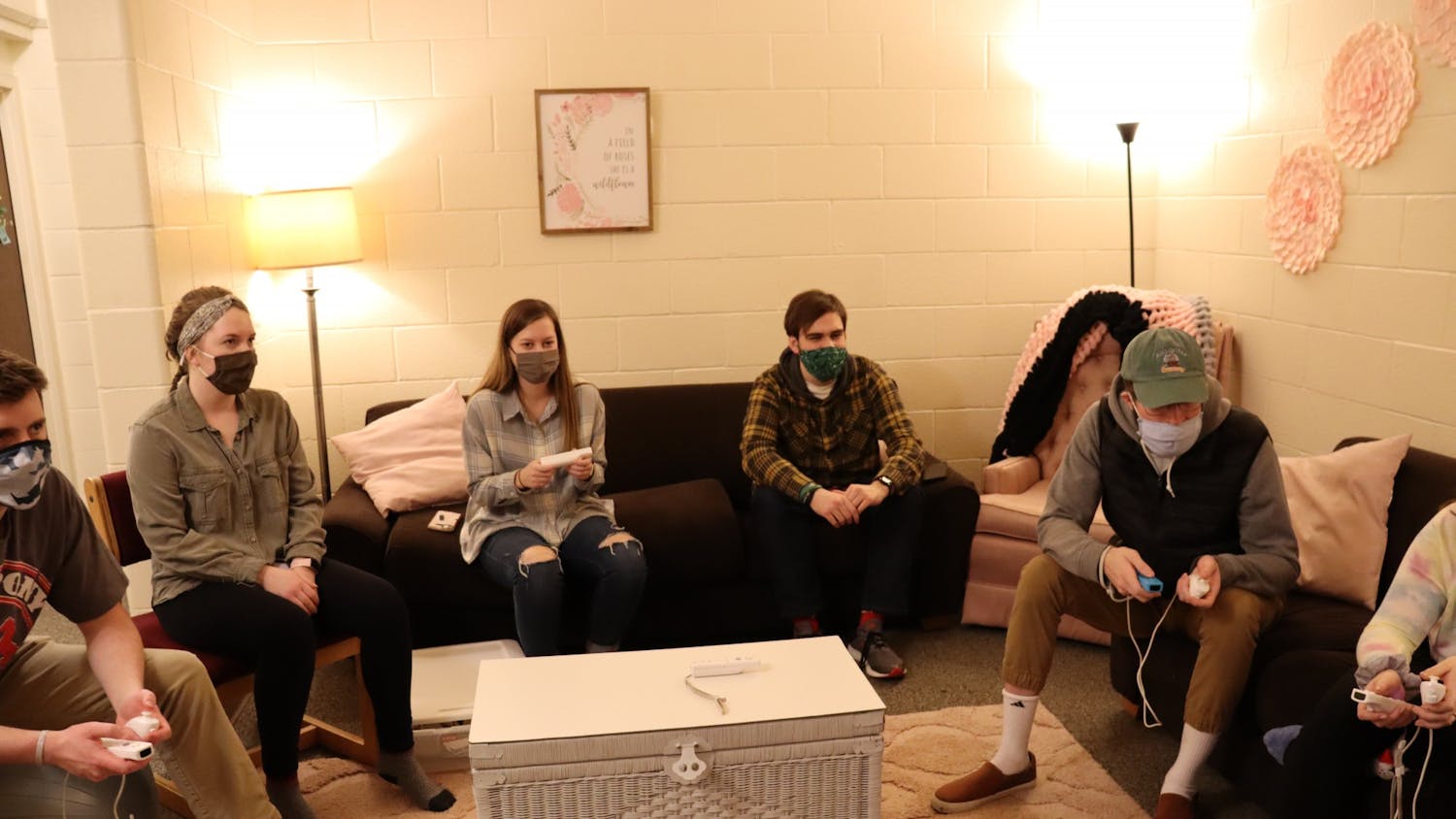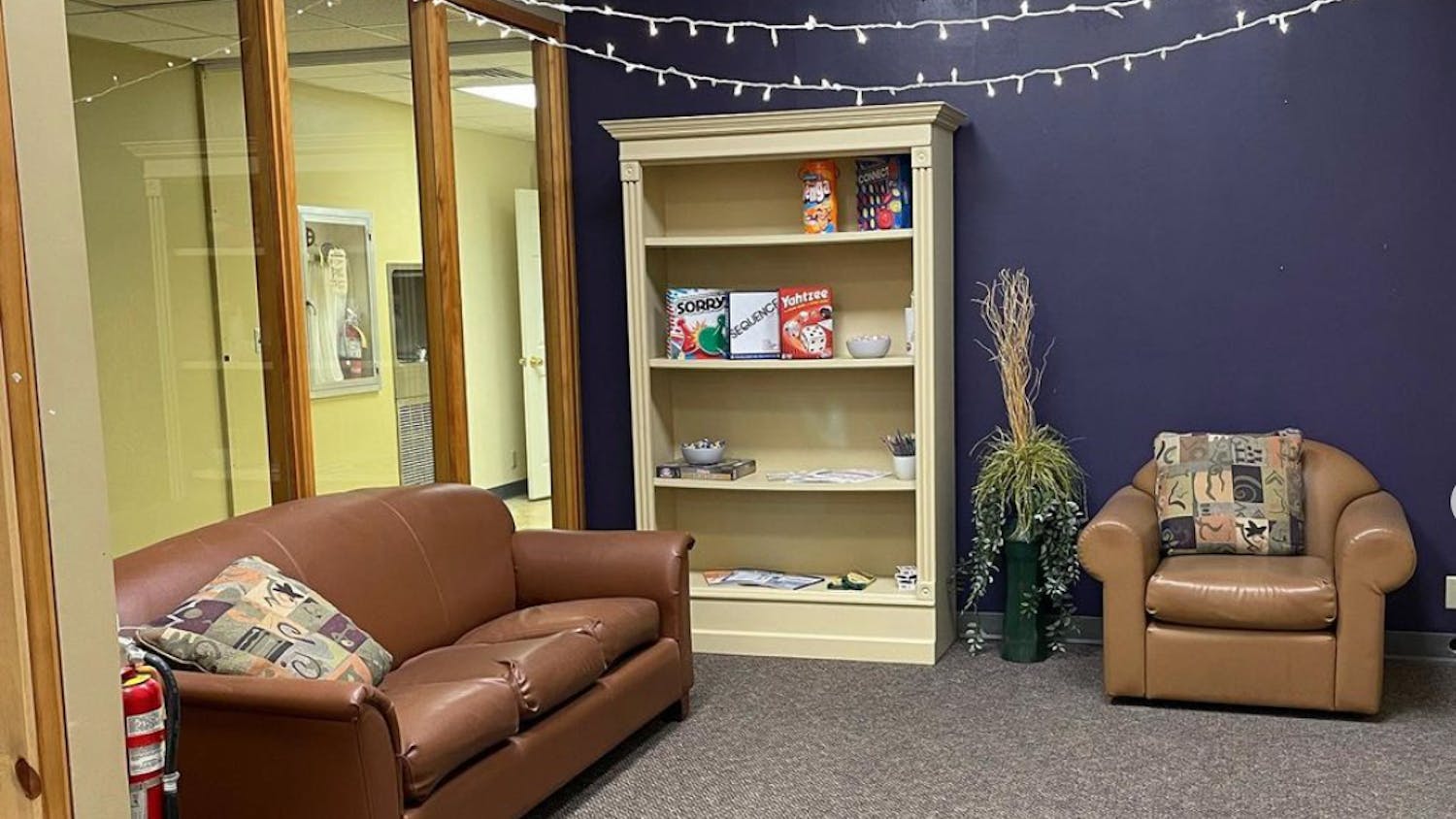Editor's Note: This article was corrected for clarity on 3/11/2022.
With the spring semester in full swing, the Taylor University Counseling Center has established therapy groups and workshops for students and faculty alike.
Three therapy groups will meet on a weekly basis for either three or four weeks. Each will address a variety of topics, including healthy relationships, anxiety and stress management and trauma and resiliency.
Registration ended Feb. 14 for both the healthy relationships and trauma and resiliency groups, but the sign-up for a second section of anxiety and stress management is open until this Friday, March 11.
There are an estimated 25 people currently signed up to participate in the therapy groups.
Kathy Chamberlain, director of the Counseling Center, stepped into her role in July 2020. She has over 30 years of experience in social work and specializes in anxiety, trauma work, couples work and mood disorders.
“I hope that one, people recognize they’re not alone and two, that they get the resources they need to make whatever changes they need to make,” Chamberlain said.
Like the therapy sessions, the Counseling Center will be hosting three workshops this semester which students and faculty can attend without registering. The subjects of the workshops are communication and conflict resolution, disordered eating and cognitive reset.
Chamberlain said the Counseling Center tries to offer workshop opportunities once a month so the Taylor community can continually learn about mental health.
First of the three, communication and conflict resolution met Feb. 15 from 4-5 p.m. in Cornwall auditorium to discuss practical communication skills and conflict resolution techniques needed in various relational situations.
The disordered eating workshop will be held March 15 from 4-5 p.m. in Cornwall for faculty and staff and from 6-7 p.m. in Alspaugh East for students. Members from Selah House, an eating disorder center in Anderson, Ind., will be sharing their knowledge about early signs behind this disorder, body image and treatment options. Students attending the second session are encouraged to bring their dinner into the space.
For the final workshop on cognitive reset, there will be one session on April 12 from 4-5 p.m. in Cornwall. This is targeted specifically at students, providing ways to identify negative thought patterns regarding self-worth and avenues to rewrite those beliefs in a positive light.
As an added incentive for students, many professors offer extra credit for attending workshops because of their embedded educational component.
For instance, Mike Guebert, professor of geology and environmental science, has provided his students extra credit opportunities if they choose to attend workshops put on by the Counseling Center and turn in a short write-up of their experience.
The Counseling Center typically sees a quarter of the student population, whether that be a one-time appointment or ongoing appointments. However, Chamberlain said by the end of 2021 their numbers increased by 33%, nearing use from one third of the Taylor student body.
“The need for mental health care is greater than it has ever been,” Chamberlain said.
One of Chamberlain’s passions in dealing with mental health is preventative care. Realizing the need for an outward facing approach, Chamberlain said only now with the COVID-19 pandemic have mental health professionals begun intentionally practicing preventative care.
Most of the therapy group and workshop subjects came directly from student feedback in light of promoting preventative care. According to Chamberlain, communication and conflict resolution was the number one request from Taylor students who filled out a survey sent out through announcements at the end of last fall.
“Our hope is that we’re reaching people that aren’t already a part of our clinic,” Chamberlain said.
QR codes and information sheets about the Counseling Center are available across campus for easy access. Additionally, grounding boxes — kits with supplies designed for reducing stress and anxiety — can be found in each dorm and also in the Academic Enrichment Center. Specifically, they include fidget toys, coloring tools and therapy lamps that mimic sunlight.
Individual appointments can be booked by emailing counselingcenter@taylor.edu and walk-in sessions are open Monday through Friday at 3 p.m., given on a first-come, first-serve basis.
For times when students or faculty are unable to utilize in-person services, Chamberlain pointed out online resources such as videos on breathing techniques and mindfulness as readily accessible any time through the MyTaylor portal.
The Counseling Center has office hours Monday through Friday from 8 a.m.-5 p.m. For program updates and mental health tips, follow them on Instagram @tucounseling.





